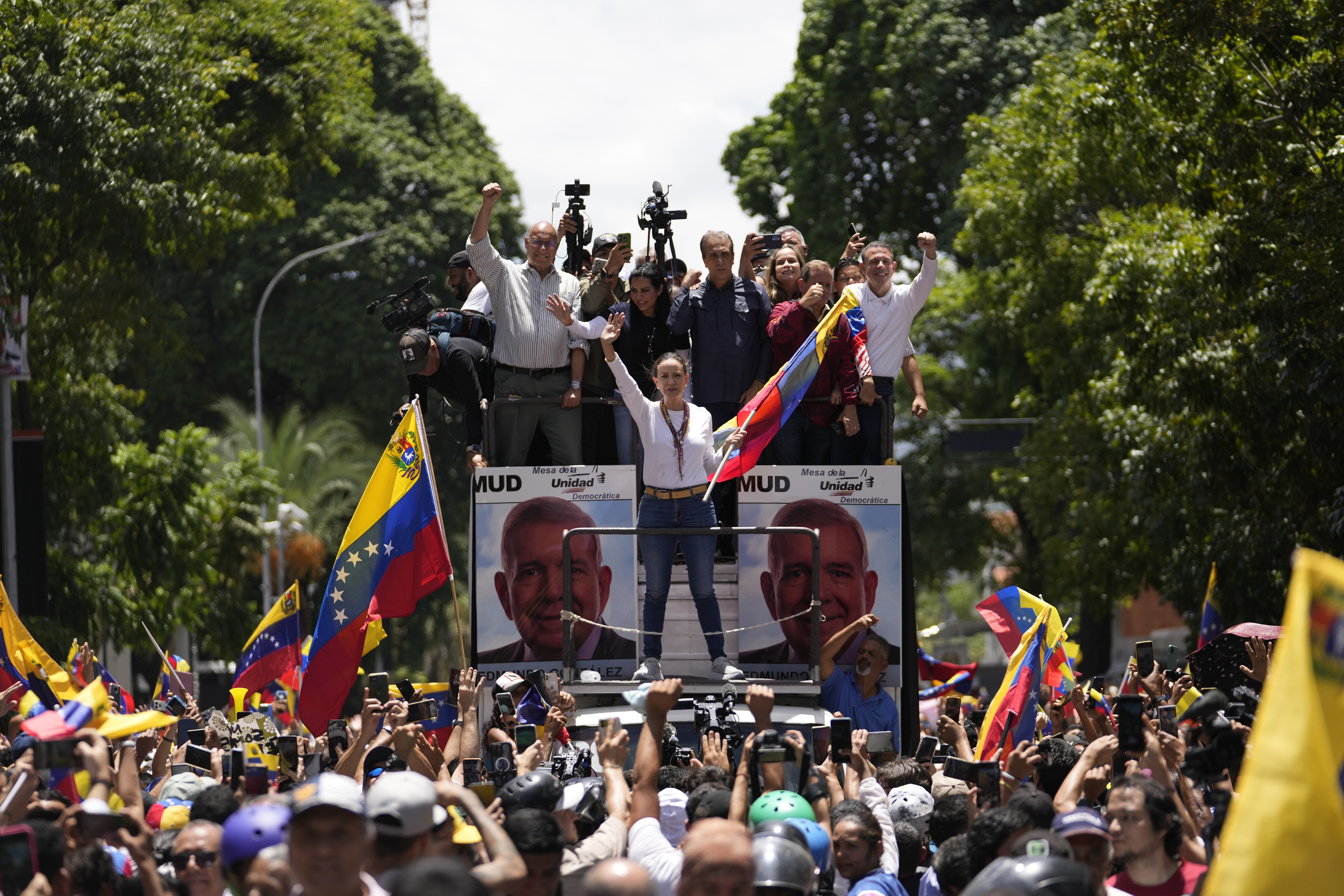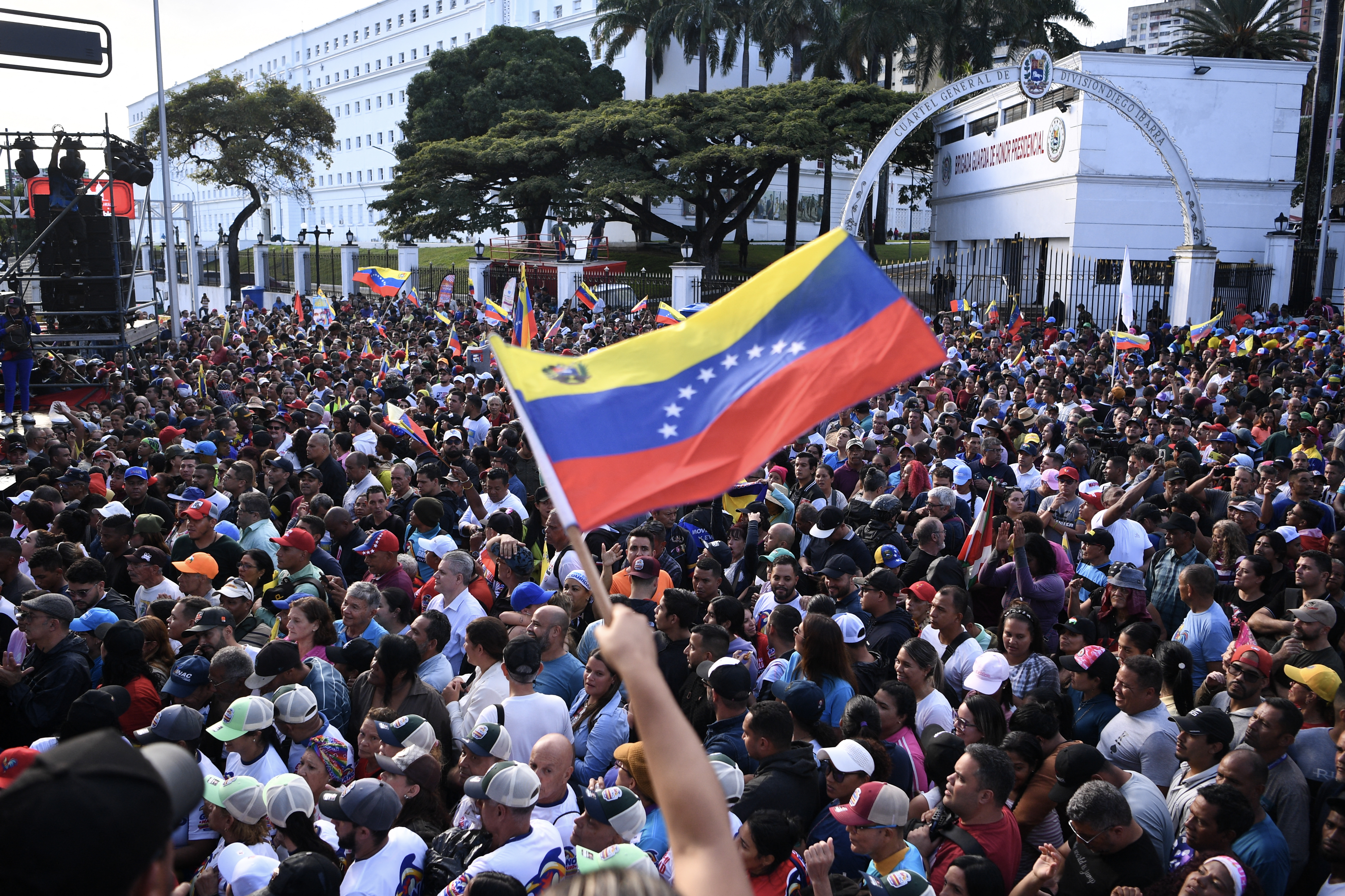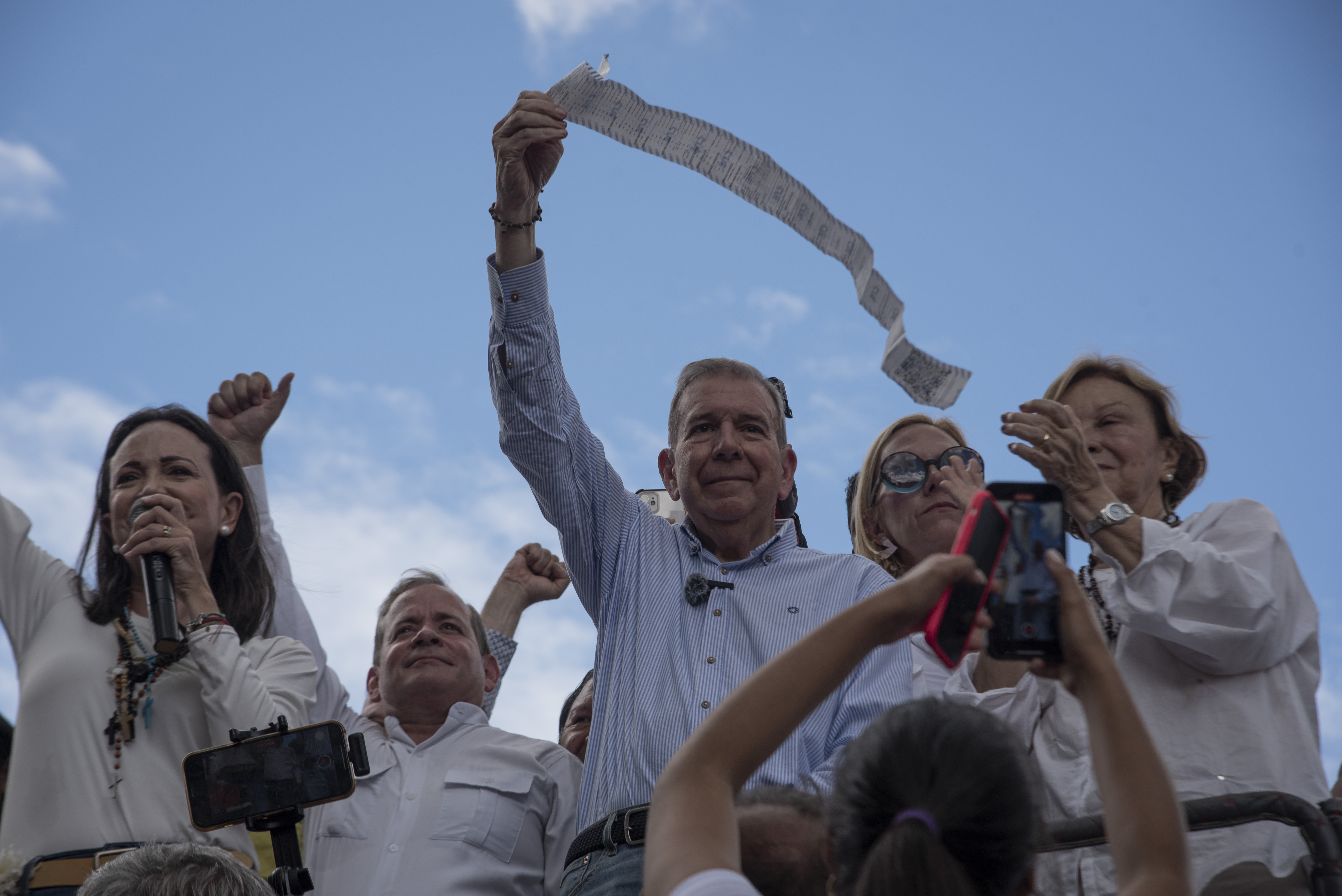Venezuela's opposition leaders are calling on the country's armed forces to abandon their support of President Nicolás Maduro and stop repressing demonstrators who have come out in force to dispute the leader's claim he prevailed in last Sunday's election.
The armed forces are traditionally the arbiter of political disputes in Venezuela and have been key to Maduro's grip on power ever since he took over the so-called Bolivarian revolution in 2013 from his mentor, the late Hugo Chávez.
WATCH ANYTIME FOR FREE
>Stream NBC10 Boston news for free, 24/7, wherever you are. |
So far, they've shown no signs of ditching Maduro even in the face of credible evidence presented by the opposition that it trounced the self-proclaimed socialist at the polls by a more than 2-to-1 margin.
In a message posted Monday on social media, Edmundo González — who the U.S. and a half dozen countries have recognized as the victor — and opposition leader Maria Corina Machado called on rank and file members of the security forces to rethink their loyalty.
Get updates on what's happening in Boston to your inbox. Sign up for our >News Headlines newsletter.
“We appeal to the conscience of the military and police to put themselves on the side of the people and their families,” the two wrote in a long message.
“We won this election without any doubt. It was an electoral avalanche,” the two continued. “Now it's up to all of us to respect the voice of the people.”
Authorities have declared Maduro the victor in last Sunday’s election but have yet to produce voting tallies to prove he won. The opposition claims to have collected records from more than 80% of the 30,000 polling booths nationwide showing it won.
Maduro announced Saturday that the government has arrested 2,000 opponents and at a rally in Caracas he pledged to detain more people and send them to prison. The post-electoral uprising has also claimed at least 11 deaths, according to Foro Penal, a Caracas-based human rights group.
The Venezuela-based human rights organization Provea, in a report issued Monday analyzing the post-election climate, concluded that the government’s response to silence people’s discontent has been “through the disproportionate use of force” that has resulted in the deaths of protesters, “the open coordinated action between security forces and groups of armed civilians in favor of Nicolás Maduro to calm the protests, and the exponential increase in arbitrary arrests.”
The organization reported that based on figures announced by the Attorney General's Office last week, the number of arrests against real or perceived government opponents is equivalent to about 42% “of the total number of arbitrary arrests recorded by Provea between April and August 2017, the most important cycle of protests in the country since 1989.”
González and Machado in their missive called on Venezuelans with family members serving in the security forces to urge their loved ones not to attack protesters and obey illegal orders. It said it would offer “guarantees” to soldiers who follow the constitution even while promising there would be no impunity for those behind abuses and following illegal orders.
Both González, a former diplomat, and Machado — who was barred by the government from running — have gone into hiding, saying they fear they will be arrested or killed. Maduro and his cadres have threatened to lock them both up.
As Venezuelans fight Maduro on the streets, pressure is also building internationally for the Venezuelan government to publish the full breakdown of the electoral results.
But so far, Maduro has instead asked the country's supreme court — which like all institutions in Venezuela is packed with loyalists — to review any claims of irregularities.
“Respect for popular sovereignty is what moves us to defend the transparency of the (election) results," Brazil’s President Luiz Inácio Lula da Silva said Monday in a press conference alongside fellow leftist President Gabriel Boric of Chile.
Boric, who cast doubt on Maduro’s victory claim in an unexpectedly strong statement within hours of Venezuela’s July 28 election, told reporters that he and Lula discussed the situation in Venezuela on Monday, without elaborating. The leaders did not take questions and their carefully worded statements signaled how leftist leaders in the region are gingerly trying to show respect for Venezuela's sovereignty while voicing doubts about the official results.
A few of Maduro’s staunch allies — including Russia, China and Cuba — have applauded his victory. On Monday, Iranian President Masoud Pezeshkian held a telephone call with Maduro and reiterated his congratulations and “condemned any foreign interference in Venezuela’s internal affairs,” Pezeshkian’s office said.
—
AP Writers Joshua Goodman in Miami and Isabel DeBre in Buenos Aires, Argentina, contributed to this report.




